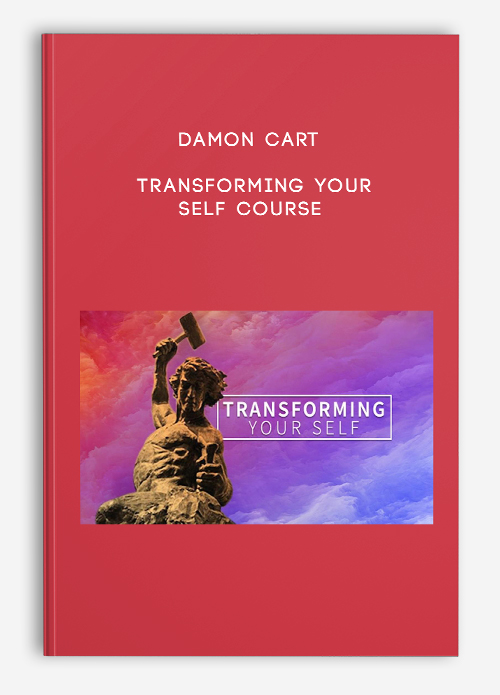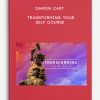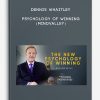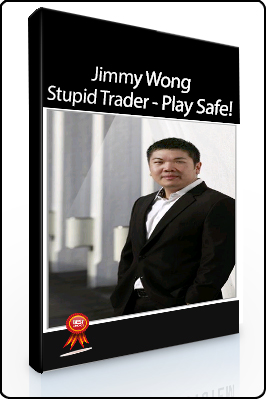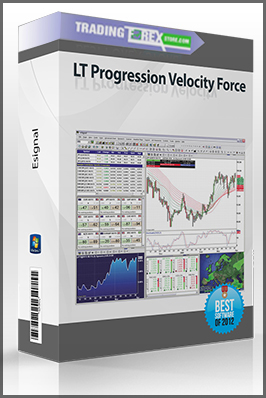Damon Cart – Transforming Your Self Course
Original price was: $347.00.$65.00Current price is: $65.00.
Product Include:
File size:
- Description
Description
Damon Cart – Transforming Your Self Course
**More information:
Archive Page
Get Damon Cart – Transforming Your Self Course at bestoftrader.com
Complete 3-day Training with Steve Andreas
11+ hours of streaming video from a complete 3-day training: unlimited access for $245. (Before applicable taxes)
Plus bonus video!
People have realized for centuries that a strong identity provides both a keel and a compass as we sail the seas of life, maintaining stability and direction despite winds, weather, and currents. But if your self-concept is poorly constructed, it won’t work very well in storms, and may steer you onto the rocks. Stability can also interfere with changing direction when you want to do that.This training teaches you how your self-concept functions, and how to use those understandings to make your self-concept work better.
A well-functioning self-concept is:
a. Resilient, durable and lasting (available when you need it most).
b. Accurate (fits with reality).
c. Self-correcting (responsive to feedback).
d. Unconscious (as in peak performance).
e. Connecting with others, rather than separating.
f. Free of self-importance, arrogance, and all the other consequences of egotism.
Your self-concept is a generalization, a self-belief, that you make about what kind of person you are. It’s not a single thing; it’s composed of many different qualities or abilities (tenacity, intelligence, kindness, etc.).
From your wealth of memories (and future forecasts) you select experiences of having a quality, and then collect them and assemble them into an internal mental structure.
Like your name, your self-concept goes through time and across contexts. Changes in it will generalize very widely in time and space, often in unexpected ways.
Since it’s a process that describes itself, it’s self-referential and self-generating, a feed-forward, goal-oriented system that creates itself, and is self-reinforcing.
Since it’s only one of many possible generalizations that you could make from your wealth of memories and forecasts, it can always be changed to another one that works better. Understanding the detailed structure of self-concept allows us to easily make changes that improve how it works.
Recorded at the Colorado summer residential Master Practitioner Training in 2004, this program is also part of the NLP Comprehensive “Portable Master Practitioner Training” DVD set.
This program contains live training in all of the material in the book, Transforming Your Self, by Steve Andreas (2002).
Why buy streaming video when you can get the same information much cheaper in book form?
There are many possible answers to that question. Many people find it much easier to learn from a live training than from a book. A live training is like a song; there is the content (the verbal lyrics) and there is the nonverbal delivery of the lyrics (the key, the melody, the timing, emphasis, etc.) that makes a song that is heard a much richer experience than the written score alone. The gestures and other nonverbal responses available in a video often clarify what would be difficult or impossible to describe in words.
This doesn’t have to be an either/or choice. Many trainings have very few written handouts, or none at all. The book that this training video is based on is the most complete “handout” you could possibly imagine, so you can immerse yourself in the video, free of any need to take written notes, secure in the knowledge that you can always refer to that section of the book. Every training is somewhat unique in the questions asked, and the problems that participants encounter, providing additional breadth of experience.
Trainers who want to expand and add to their skills may find it useful to learn from this extended experience of Steve’s relaxed yet well-organized training style at its best, even if they are already familiar with the content.
Technical note:
This single-camera footage is unedited, “fly on the wall,” complete except for a few minutes now and then when the recording failed.
Steve always wears a microphone, and any demonstration subject always wears a microphone, so their sound quality is very good. Participants don’t have microphones, so sometimes it’s hard to hear their comments or questions clearly. However the gist of what they said is usually clear from the context, and Steve’s response to it.
Bonus Video!: Building Self-Concept Demonstration
In addition to the 11+ hours of regular video, you’ll also get a free demo of how to use this information with a client, sold elsewhere for $39. In this demonstration Peter learned how to think of himself as lovable, and the wide-ranging impact of this change is demonstrated in follow-up interviews with Peter and his wife.
What people are saying about Transforming Your Self:
“Steve Andreas’ Transforming Your Self is not only a must read, it is a must do book. So much of self help these days enumerates the habits and abilities that you need to be successful. Unfortunately, that doesn’t tell you how you can acquire those traits in a way that matches who you are. By doing the step by step instructions in Steve’s book you can build a self-concept that can have you performing the way you always wanted to.
“I know because I lost 70 pounds in 6 months by creating a self concept of ‘I am a healthy eater.’ Using Steve’s process I was able to:
- Identify all the times when I was a healthy eater. I wasn’t as bad as I had thought.
- Establish the deep motivation, not just will power, to be even more of a healthy eater, regardless of what was going on in my life.
- Redirect all the habits and beliefs that prevented me from consistently being a healthy eater.
“When I first worked through Transforming Your Self, I was blown away by how profound this work is. I had my first transformational experience when I explored the quality of gratitude, revisiting times in my life I was most grateful. Going through the exercises increased my sense of gratitude tremendously, actually bringing tears to my eyes several times.
“The first time I used the model with someone else, I worked with a woman whose certain quality was independence, which she prided herself on. With the book in my hand I went through the outline step by step, teaching her how to make this quality even stronger. At times she nearly came to tears. When we were done I asked her if she was independent. She said “Yes, but now I realize how many people helped me along the way, and now I want to call them and thank them.” That kind of response is typical of the deep balance and humility that results from self-concept work—the opposite of egotism/narcissism.
“When I’m working with clients the typical comments I get are, “Is this really happening?” “Will this stay this way?” and “How can this be this easy?” signaling conscious amazement at desired unconscious changes.
“Years later I’m still using the model for my own personal development and with my clients with extraordinary results. Every model has its limits but I’ve yet to find the limits of the self-concept model. I have not encountered its equal in the field of NLP or anywhere else.”
—Damon Cart, NLP Gym
Self Help – Self Help online course
More information about Self Help:
Self-help or self-improvement is a self-guided improvement—economically, intellectually, or emotionally—often with a substantial psychological basis.
Many different self-help group programs exist, each with its own focus, techniques, associated beliefs, proponents and in some cases, leaders.
Concepts and terms originating in self-help culture and Twelve-Step culture, such as recovery, dysfunctional families, and codependency have become firmly integrated in mainstream language.
Self-help often utilizes publicly available information or support groups, on the Internet as well as in person, where people in similar situations join together.
From early examples in self-driven legal practice and home-spun advice, the connotations of the word have spread and often apply particularly to education, business,
psychology and psychotherapy, commonly distributed through the popular genre of self-help books.
According to the APA Dictionary of Psychology, potential benefits of self-help groups that professionals may not be able to provide include friendship,
emotional support, experiential knowledge, identity, meaningful roles, and a sense of belonging.

